Dear reader,
Whether we’re artists or not, our feelings are universal. The good, the bad, and the ugly — jealousy, insecurity, self-doubt. But we are convincing creatures. We are fantastic at masking, at presenting in ways that indicate we are not having negative inner experiences or intrusive thoughts.
I think this ability to hide what we’re feeling means that everybody ends up playing the same cheap, unspoken game. As if it’s fair play, we compare our insides to other people’s outsides. And later, when we fall ill with “comparisonitis”, we’re sure it’s about us, and not actually because we’re playing a rigged game.
We think we know other people because of how familiar we are with ourselves, but do we really have the whole picture? And in hard times, fraught with uncertainty or lack, how easily do we become defeated, simply because we’ve neglected to consider it?
In my personal life, I assume that my self-awareness is enough to keep the complexities of individual relationships separate from one another. If I’m mindful, I imagine that I can compartmentalize significant events and only think or feel about them when I decide to. But I wonder if this is a load of crap, or at best, an impossible emotional standard to live up to.
Lately, what’s been on my mind is how after over a decade together, my mother’s boyfriend retired, sold his practice for hundreds of thousands of dollars, and kicked my mother out at 72 when her dementia was no longer something he could deny.
Fred “adopted” me late in life. I was in my mid-twenties when he met my mother, and by then, already estranged from my biological father. Over the years, Fred kept a room for me in his home, taught me how to carve a spoon, welcomed my cast of rotating dogs and boyfriends with kindness, built me anything I asked him to, took me out for ice cream, and unquestioningly believed in me as an artist. But the abrupt ending of their relationship was seismic, and right now we’re not really speaking.
Instead, my mother’s newly single status has forced my brother and I to talk to each other for the first time in years. Together, we are trying to navigate life without the patriarch we assumed would stay until the end. The blurriness of our mother’s future with dementia, the things that led to where she is now (and how I myself might avoid them), and the moral questions raised by end of life options, as well as child-to-parent responsibility — these dilemmas are at the forefront too.
I am caught in a storm. Although the weather is not unique to me (dissolution of family structure, loss, an aging parent), I can tell that I’m in the eye of it, or about to be. And yet, I like to think I can split myself into parts and that these circumstances won’t impact my other relationships, like the one I have with T. I pray that I can protect myself from myself.
This summer, my romantic relationship has felt particularly raw with growing pains. T. and I just marked one year together, but instead of celebrating, I’m tender. A period of negative thinking has coincided with my visit to witness the impact of all the recent changes in my family. My fears of abandonment and loss are steering more often than usual, and as a result, I’ve been de-selfing and feeling resentful or disengaged. It makes sense to me, but I’m still hard on myself about it.
I know that issues present themselves in every relationship, but during conflict, I have a tendency to look around in my community and at my close friends and think that other relationships are better or more sane than mine. During my recent visit to the city that never sleeps, a pity-party called I Wish This Was Easier For Me ran 24/7. I noticed a voice in my head, Everybody Is Better At Love Than I Am, get louder. It seems like other couples have it together.
Then, just when I thought that things couldn’t get any worse, something depressing yet illuminating happened: I found out that two different couples I used to spend time with in Rockaway broke up. To me, these couples were “lifers”. They were just shy of being inducted into the Ride or Die Couple’s Hall of Fame. When I was single, they were the relationships I used as my own material for what I had to look forward to. Hearing this news rocked me. I know I’m not the only one who felt untethered.
With the exception of our close friends, we never know what’s really happening for other people. Not only is this a good reason to exercise compassion and patience with everybody as much as possible, but it’s also a good reminder that comparing ourselves to others is often a baseless, uninformed act of self-sabotage.
Just because these couples are no longer paired doesn't mean that what the people in them had together wasn’t special. I still aspire to what they shared at one point, but these splits snapped me out of my relationship comparisonitis. I realized I know nothing, and I probably have nothing to feel bad about either.
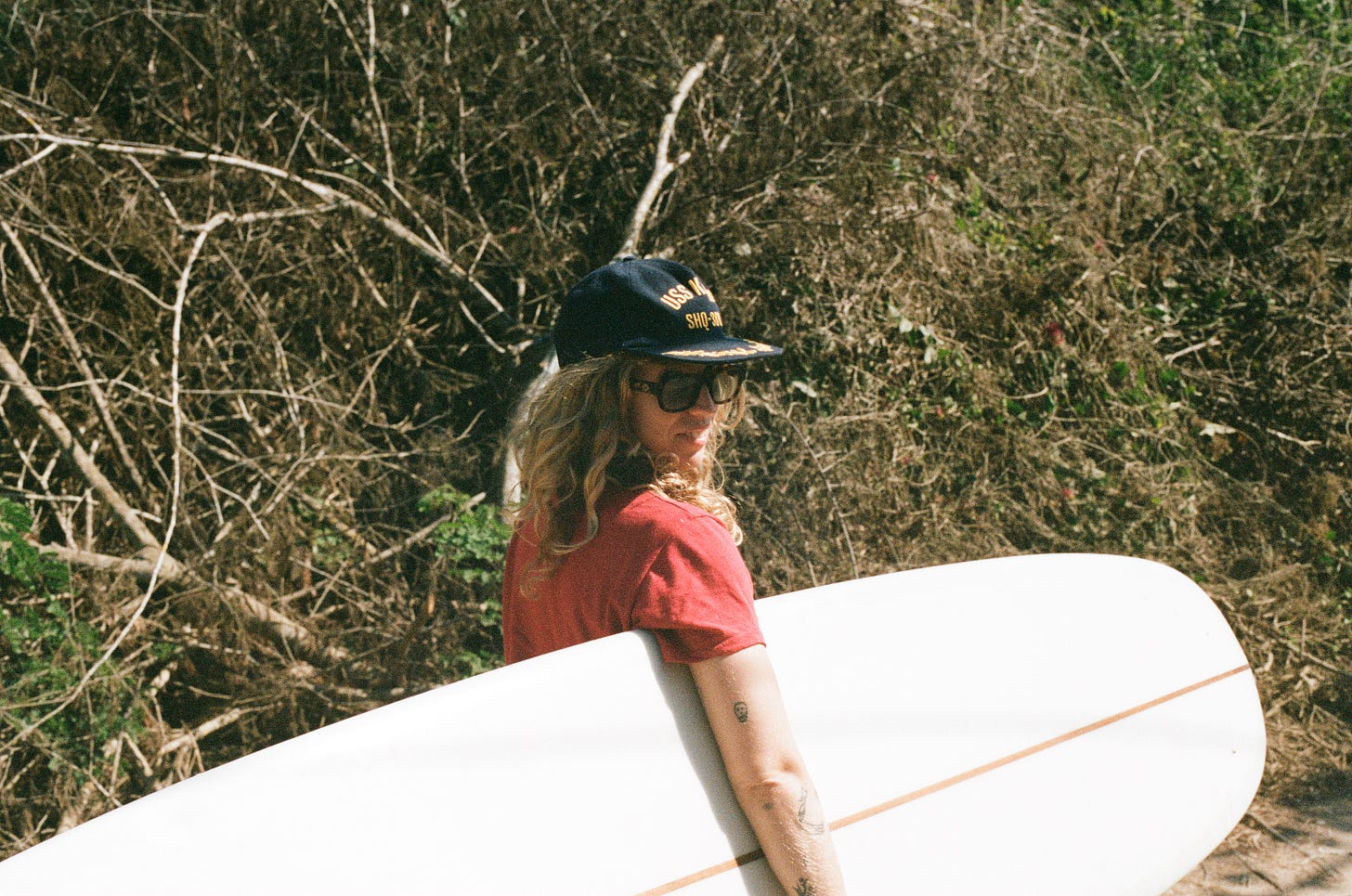
I've been doing one-on-one creative advising sessions with private clients for just over a week. For those of you that haven’t heard, I opened up my mental capacity — and my schedule — to help other people actualize the desires that keep them up at night.
My main incentive behind creating this offering was to help people in a private, safe, and direct way. Although I’m only eight sessions in, I feel like I’ve seen people begin to reframe their limiting beliefs right in front of my eyes.
So far, my client’s concerns overlap one another’s. A lot. People are afraid to fail, or think they already have. People are afraid of making “ugly” or “bad” work, and being judged for it. Most significantly, people feel defeated by other people’s work. Comparison, it seems, is in the air.
Last week, T. and I took the ferry to the MoMa to see an exhibition of drawings, mostly charcoal and pastel chalk, made by Georgia O’Keeffe. It was a sight to behold; some of the drawings on view are over 100 years old.
Recent conversations with clients about the harm caused by looking at other people’s work were fresh in my mind. Since becoming aware of my own detrimental habit of comparison, I considered how easy it would be to walk away feeling like I’d never be as good as Georgia. Instead I left the museum feeling jazzed.
Using other people’s relationships as a reason to feel bad about mine — or to avoid one altogether — doesn’t lead to personal growth or more intimacy. I’m trying to remember that. In the same way I’ve been caught up in comparing my insides to other people’s outsides, I wonder how often we compare our beginnings to other people’s middles and ends?
I like to imagine that there was a time when John Lennon was like, I’m just not sure about this. Given what we know now, it seems unlikely, impossible even, that he ever questioned or compared himself. In our hearts, we know that he did because self-doubt is a universal law for everybody. But our judgement goes blind from all of the shiny things that The Beatles accomplished. We forget to consider the whole picture. What was it like at the beginning?
We often experience someone’s practice or work only once they’ve been able to dedicate years to it — when they’ve literally made a lifetime out of it. Because of this, it’s natural to feel intimidated by what we witness. We might think to ourselves, I can’t do that, and we might be right. In art or writing, it’s not uncommon that we can’t currently achieve the same results that people with at least a few decades on us can. People who are older than us have had more time to practice. And practice. And practice.
Rarely do we compare ourselves to other emerging artists who are just trying to figure out a daily practice, keep a nine-to-five job, pay off debt, and maintain friendships. Instead, we compare ourselves to established, often very famous, career artists.
It's terrific — and crucial — to use older, more experienced creative people as expanders to learn from. It’s even better to use their work and way of being in the world as a standard that we set for ourselves. But using other people’s work as the excuse not to make our own because we don't think it will ever be as good, is life in captivity.
When I stand in front of Georgia O’Keeffes oeuvre, I remember what I’m looking at: decades and decades of discipline, trial and error, and refining. In that moment, the only important difference between her practice and mine is the time spent doing it. It would be cruel to hold my current work up against paintings made by somebody in their sixties. Somebody, I should add, who wasn’t plagued by social media, the internet, or reality TV.
Dear reader, the next time you’re sick with comparisonitis, please think about whose work you tend to pedestal. At what point in their career and development do you hold your own work up against?
Comparing our beginnings to other people’s middles and ends is like giving somebody an impossible head start, holding ourselves accountable as though we didn’t, and never trying again when we inevitably lose.
When it comes to intimidation and comparison, can we use the feelings that come up as data about what we’re responding to, instead of spiraling into dread? Can we interpret it as a signal that we’re simply witnessing a standard that we want to hold ourselves to, rather than use it as a reason to question our own unique path?
Some of O’Keeffe’s early work is, to me, kind of whatever. But it’s a blessing that people get to see it. It’s a humble reminder that everybody starts from somewhere, and most people start from nowhere.
Love,
Anna
p.s. I’m taking another break from Instagram. I would love it if you shared today’s letter, because I can’t.






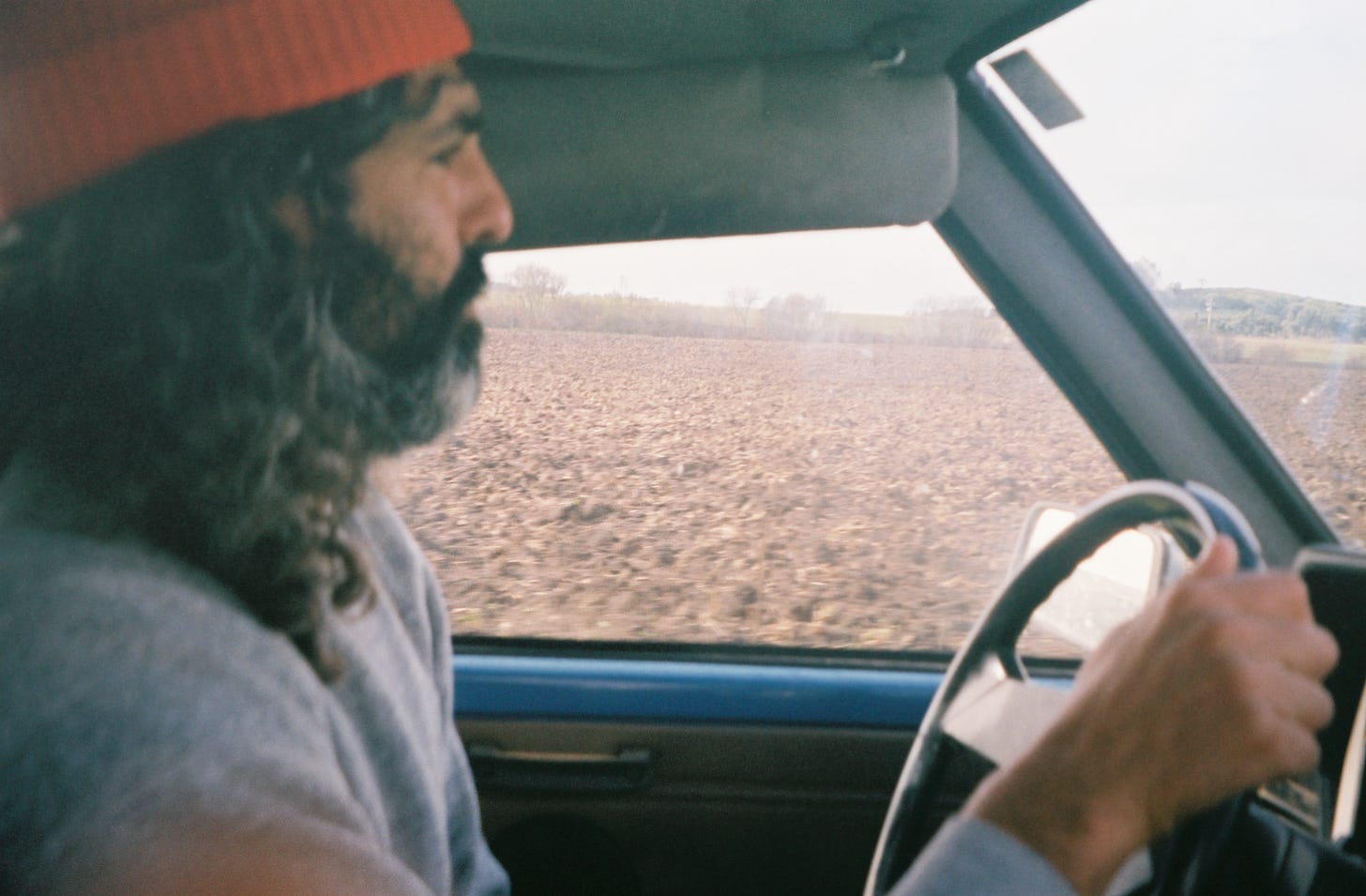
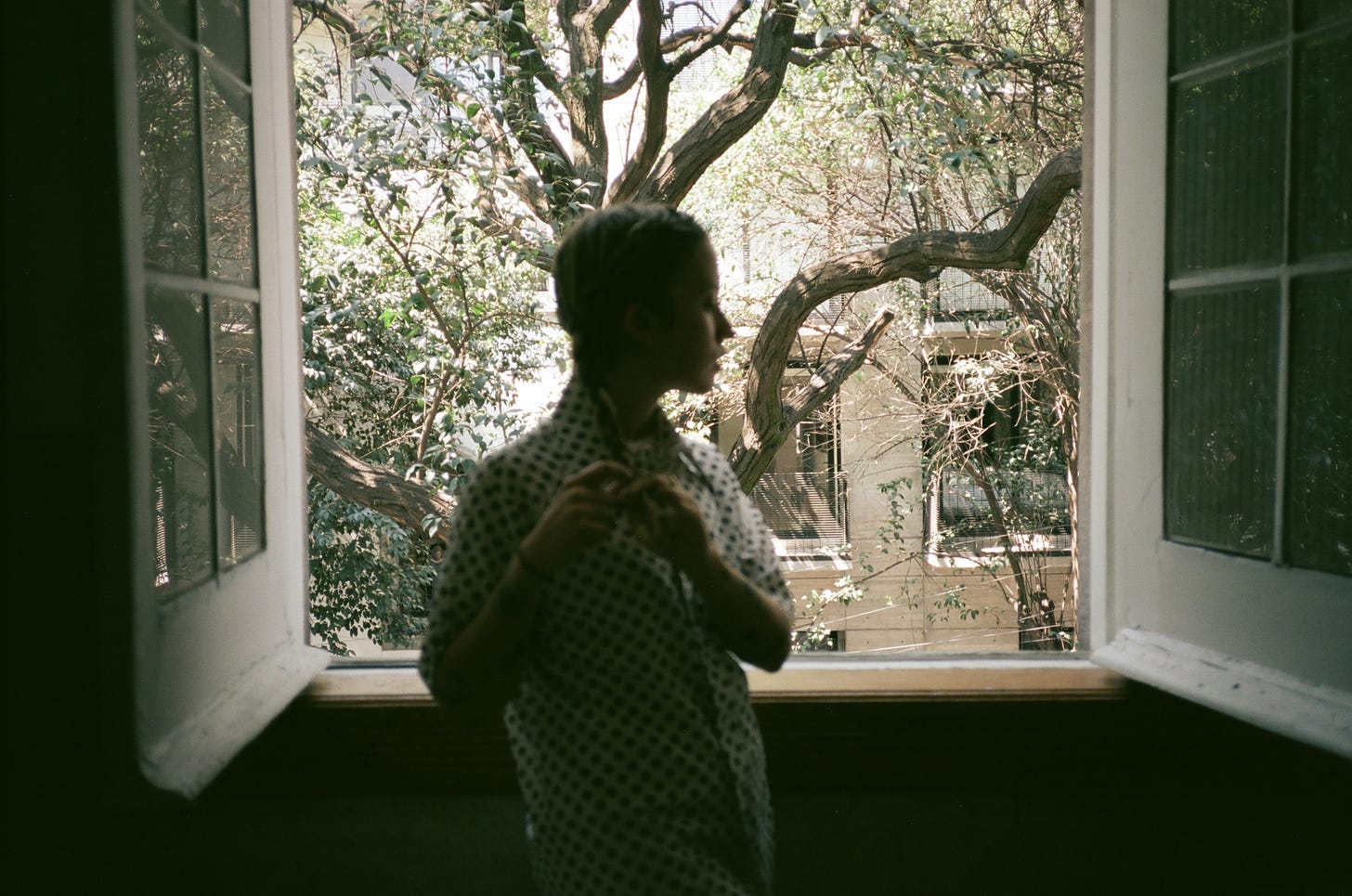
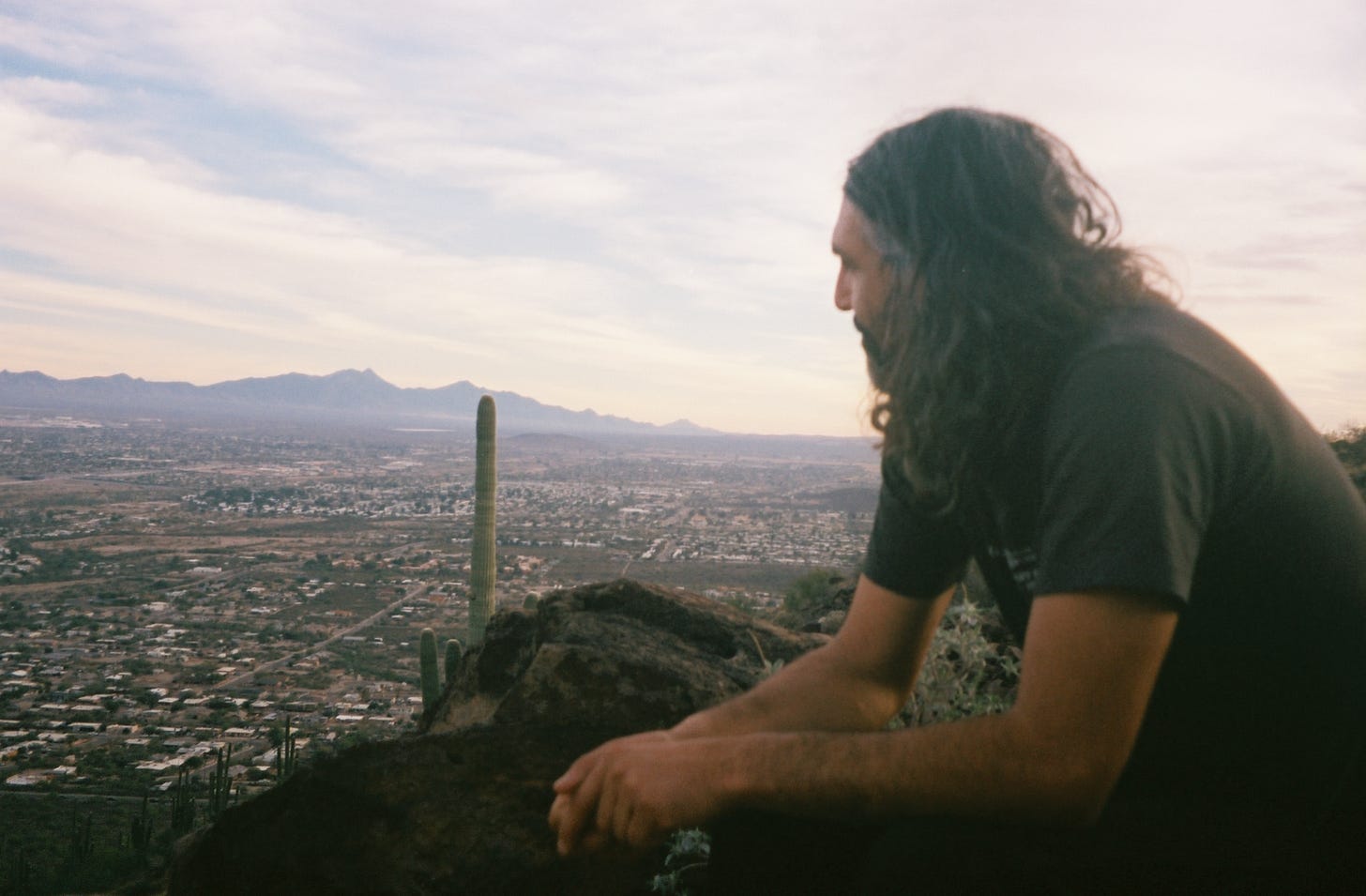
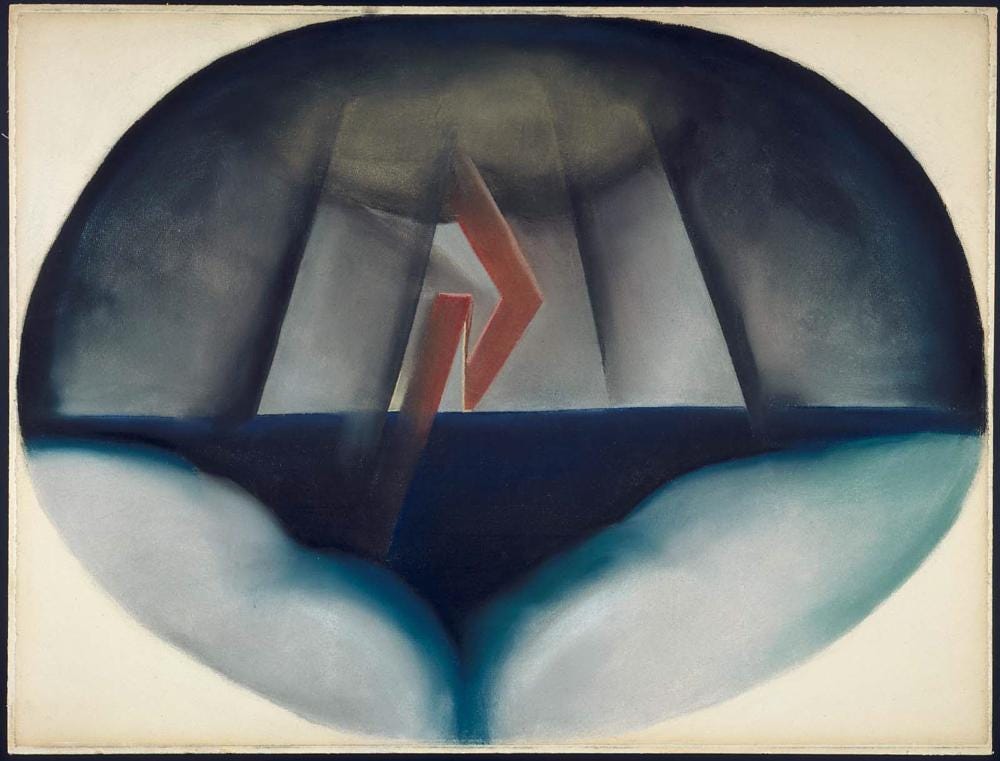
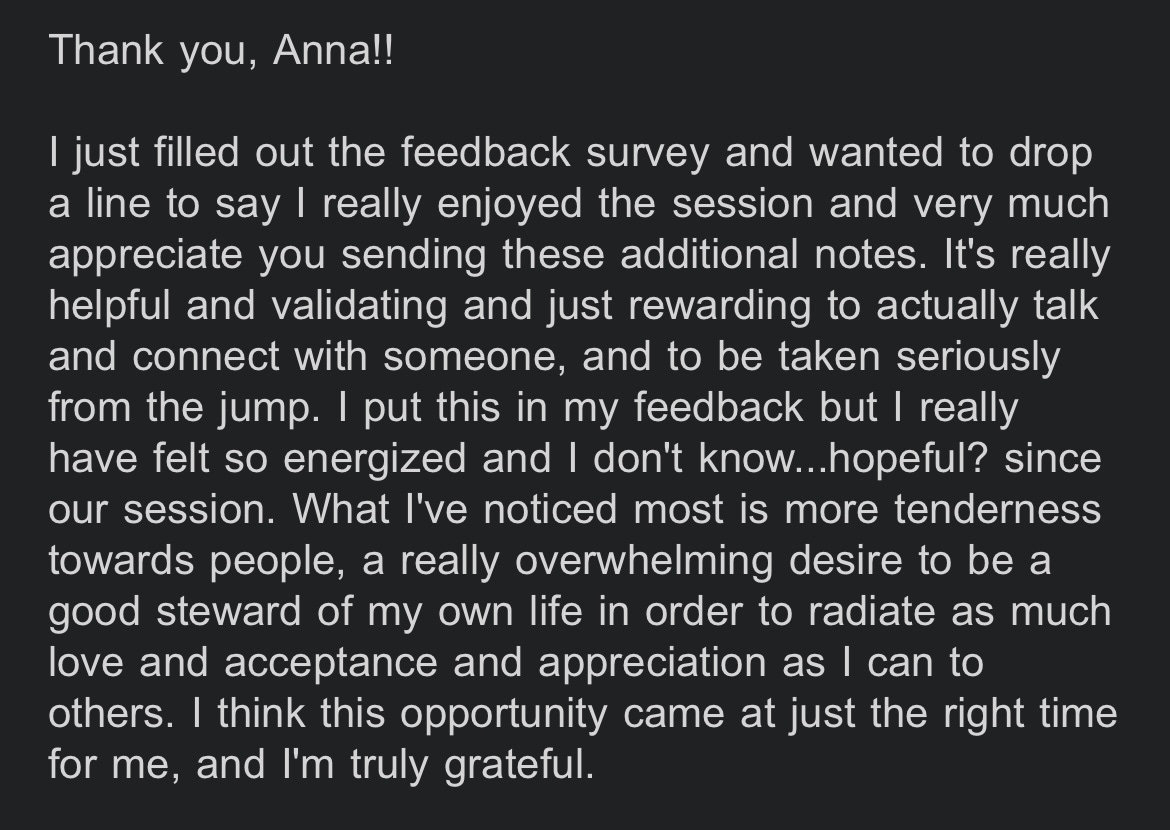

Oh my. This was a rare essay that, even in all its brilliance, did not make me run to the hills of comparison. It's been beautiful to watch your writing flourish over the past however many months since I first subscribed to your newsletter. I've for sure felt bouts of comparisonitis (love this, yes) with you--let's be real, I have those bouts with every newsletter I recommend. Maybe I'm just in a good place. But really, I think what happened is that you managed to communicate your message so purely that all I want is to hone my own writing so that it has a similar effect on another reader. Thanks for being a Georgia: today, it's me who feels jazzed.
I absolutely love the unfolding of your story back to inner-self, a place of not judging any timeline or starting point regardless of age or expertise .💗 As an artist myself, who has picked up and put down the brush & camera because of caring for a parent earlier than expected....well, it's easy to throw in the towel. After 30 years at the caregiver helm, I've learned to allow a slower opening. I embrace writing on the days I long to paint when I can't due to obligations, etc. This creative sidestep approach has allowed me to tap into other interests that were simmering. I've learned to suspend my inspiration and tap back into that exact moment of touching Source when I "have the time." Thank you for your loving words....they've inspired me to embrace that Grandma Moses and I may have more in common than I realize, and that's a beautiful thought! Marker adjusted, peace within. 💗👊